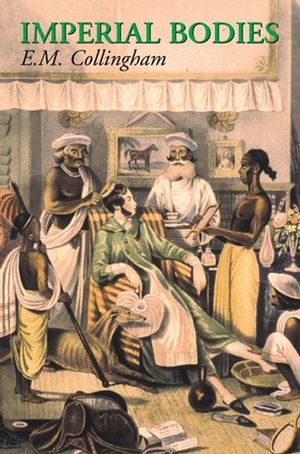Imperial Bodies: The Physical Experience of the Raj, c.1800-1947ISBN: 978-0-7456-2370-2
Paperback
288 pages
July 2001, Polity
 This is a Print-on-Demand title. It will be printed specifically to fill your order. Please allow an additional 10-15 days delivery time. The book is not returnable.
|
||||||
'Collingham's work on the physical experience of the British is
a remarkable piece of research and analysis. Perhaps the most
extraordinary part of the work is her section at the end of the
book on the "Social Body" where she describes the new tasks (mostly
not undertaken) that confronted the British understanding of their
bodies as the moment of Independence of India and Pakistan loomed.'
Gene Irschick, University of California at Berkeley
"its ambition is to be applauded" Mark Harrison, University
of Oxford
'Lively and insightful.' Times Literary Supplement
'A first-rate read ... What makes Imperial Bodies such fun to
delve into is the mass of fascinating social detail that its author
has uncovered and assembled; by turns medical, biological,
culinary, sartorial, sexual, even scatological, drawn from sources
as diverse as advertisements for soft flannels in The Englishman,
Chota Sahib's Camp Recipes for Camp People (Madras, 1890) and the
Whipping Bill of 1864. In sum, a fine body of work.' The
Spectator
'Beautifully written, this history of the body during the Raj is
a telling antidote to the traditional imperial histories of the
British occupation of India. Weaving analytical and empirical
knowledge E.M. Collingham produces a very readable and at times
shocking history of British arrogance and ignorance of Indian
cultures and histories ... It is a remarkable book, one that
reaches well beyond an academic audience to all of us concerned
with the trends behind the cultural and social inequalities and
confusions with which we continue to struggle.'
Development
'Using this evolving parade of the colonial presence, Cambridge
academic E.M. Collingham provides a fascinating sweep of
Anglo-Indian society and its attitudes to a variety of topics,
among them the home, dress, food, cleanliness, sexuality, and
servants.' The Natal Witness
"I found this book more illuminating than any previous
postcolonial history, both because it sees the world that children
saw - which is not far from a world that an observant doctor sees -
and because it goes further in accounting for it and explaining its
unique mix of lovable and repellant features than anything else I
have read." International Journal of Epidemiology
"Readers will find much that is original and of interest in this
book." Victorian Studies
"This is a highly readable and lucid account of a relatively new
topic in imperial history and historiography and should prove of
value to historians as well as scholars in a number of other
disciplines." Kleio
"Well researched, clearly argued, and full of rich and interesting detail, this is a book that will be of interest to anthropologists, culture historians and scholars working in the field of colonial and post-colonial studies." Joseph S. Alter, Journal of The Royal Anthropological Institute



